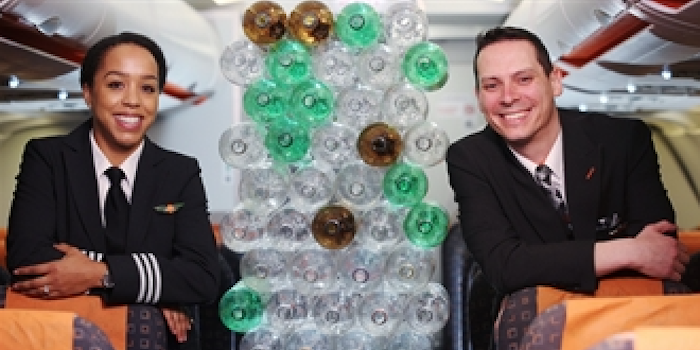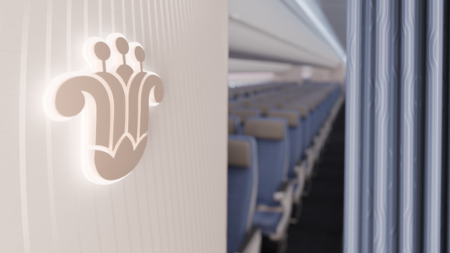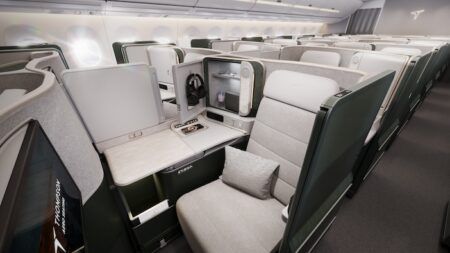European low-cost carrier, easyJet, is introducing a new uniform for cabin crew and pilots this month. Each uniform is made from around 45 recycled plastic bottles, manufactured by Northern-Ireland based Tailored Image, who use the plastic to create a high-tech material. The airline estimates that the roll-out of the uniform will prevent around half a million plastic bottles from ending up as plastic waste each year. The high-tech material is also made using renewable energy sources and is claimed to have a carbon footprint 75% lower than that of traditional polyester.
The fabric, adapted to the airline’s current style, was first trialled in 2020 and was found to be more abrasion-resistant than the previous uniform, with a four-way stretch that improves fit and freedom of movement. The durability also means fewer uniform items will need to be produced in the long term.
Plastic has also been replaced in the packaging and structure of the uniforms, in favour of recyclable and biodegradable materials: plastic collar strays are replaced with recyclable cardboard ones, plastic shirt clips with metal clips, non-recyclable white coated card with recyclable cardboard card, and polypropylene outer shirt covers with biodegradable shirt covers.
The uniform project follows other easyJet initiatives to reduce the use of plastic onboard, such as replacing single-use plastic items with more sustainable alternatives. For example, a small plant-based bowl is used as a teabag holder, removing over 27 million individual items of plastic from the airline’s inflight retail operations in Financial Year 2020, and easyJet has never offered plastic straws. It also offers a £0.50p discount on hot drinks for customers who present their reusable cup.
Tina Milton, director of cabin services at easyJet stated, “Climate change is an issue for all of us, and at easyJet, we are looking at all parts of our operation to see where we can reduce carbon emissions and reduce waste.
“It is a priority for us to continue work on reducing our carbon footprint in the short term, coupled with long-term work to support the development of new technology, including zero-emission planes which aspire to reduce the carbon footprint of aviation radically. We continue to work with innovative technology partners Wright Electric and Airbus. Each of them has set out its ambitious timetables for bringing zero-emission aircraft into commercial service to become a reality.”





